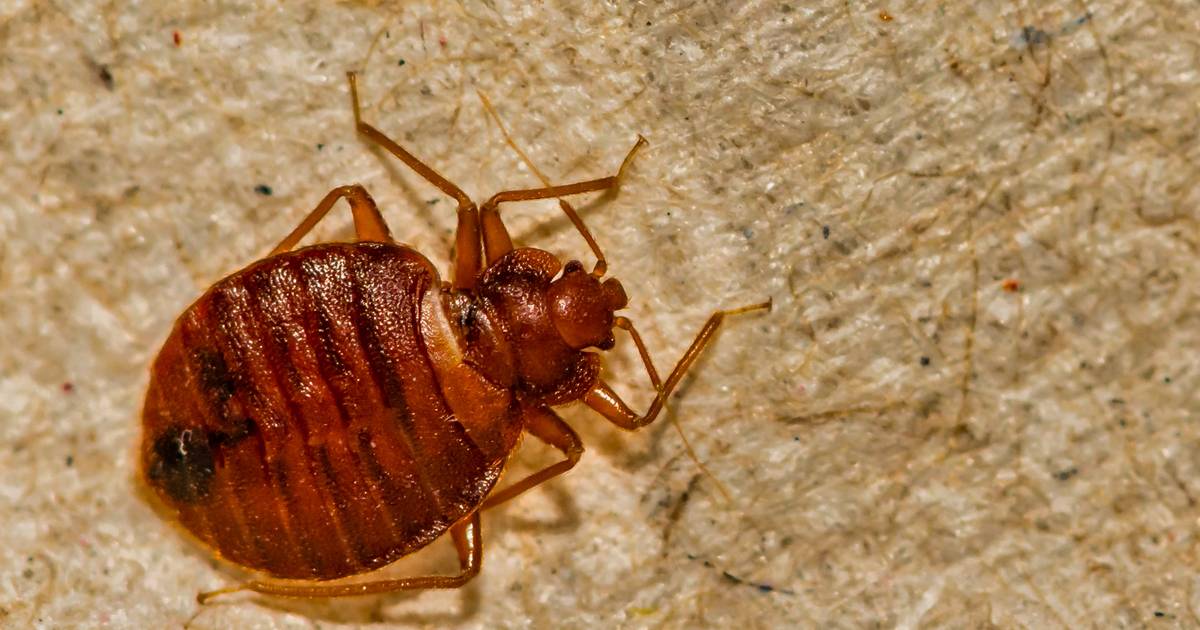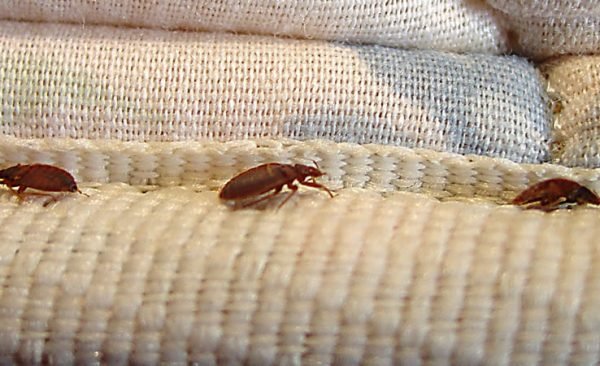Obtain Educated Regarding the Sorts Of Bug Control Techniques and Their Benefits for Property Owners
Comprehending the numerous bug control methods readily available to property owners is essential for reliable bug monitoring. Property owners that are knowledgeable can make strategic options that not only address pest problems yet likewise boost the general top quality of their living environment.
Chemical Parasite Control Methods
Chemical bug control methods are an essential element of incorporated insect administration strategies for house owners looking for effective options to pest problems. These approaches include the application of chemical materials designed to get rid of or hinder pests that endanger personal effects, health, and comfort. Typical chemicals made use of consist of insecticides, fungicides, rodenticides, and herbicides, each customized to target details pests.
The primary benefit of chemical parasite control is its rapid effectiveness; numerous formulas supply instant outcomes, minimizing pest populaces significantly quickly. In addition, advancements in chemical formulas have resulted in products that are much more ecologically pleasant and have reduced poisoning degrees for non-target microorganisms when applied properly.

Biological Bug Control Techniques
Natural parasite control methods have obtained prestige as property owners look for more secure and much more lasting choices to traditional chemical methods. Organic parasite control techniques use all-natural killers, parasites, or pathogens to handle bug populaces effectively. This technique is not only eco friendly but likewise lessens the threat of injury to non-target species, including helpful pests and wild animals.
Among one of the most usual organic control approaches involves introducing natural predators into the setting. As an example, ladybugs can be used to manage aphid populations, while nematodes target soil-dwelling bugs like grubs. In addition, parasitoids-- microorganisms that survive on or within a host-- can be used to regulate details parasite varieties by laying eggs inside them, inevitably bring about their death.
An additional strategy is using biopesticides, which are derived from natural materials such as microorganisms, plants, or minerals (bed bug exterminator). These products can properly target pests while posturing marginal danger to pets and human beings. Generally, biological parasite control methods supply home owners with an effective means of pest monitoring that lines up with ecological concepts, promoting a healthier living setting while minimizing reliance on artificial chemicals
Mechanical Bug Control Techniques
Mechanical pest control approaches include a selection of techniques that physically stop or eliminate parasites without the use of chemicals. These strategies are especially useful for homeowners looking for environmentally pleasant options while making certain the security of their space.
One typical approach is making use of obstacles, such as catches, screens, and internet, which avoid parasites from going into homes or details areas. For circumstances, installing window displays can effectively keep bugs out, while making use of physical paste control chemicals barriers around yards can hinder larger insects like deer or bunnies. Additionally, mechanical traps developed for rats can record and get rid of these pests without the need for hazardous materials.
An additional reliable strategy involves using vacuum cleaners and mops to get rid of pests directly from surfaces. Regular cleansing and maintenance can considerably decrease bug populaces by removing food resources and concealing areas. In addition, using tools like ultrasonic pest repellents can deter numerous bugs through acoustic wave that are unpleasant to them however faint to human beings.
Social Parasite Control Practices
Social bug control methods concentrate on modifying the environment and monitoring strategies to produce conditions that are less favorable to pest invasions. These practices are basic in keeping a balanced community and decreasing the dependence on chemical treatments. By changing agricultural methods, house owners can successfully discourage pests while advertising plant health and wellness.
One common strategy consists of crop turning, which interrupts the life process of parasites by transforming the sorts of plants expanded in a certain area (bed bug exterminator). This not just reduces pest populaces however additionally boosts soil wellness. Furthermore, intercropping-- planting varied plants in distance-- can confuse bugs and reduce their capacity to locate their preferred host plants
Water monitoring is another essential element of social practices. Appropriate irrigation methods can prevent standing water, which acts as a reproduction ground for mosquitoes and various other pests. Moreover, maintaining tidiness around the home, such as on a regular basis removing debris and food waste, can significantly decrease pest attraction.
Integrating these cultural techniques right into an extensive bug monitoring strategy allows house owners to Full Report develop a setting that normally deters insects, therefore improving the efficiency of various other control approaches while advertising lasting gardening and landscape design.

Integrated Insect Management Approaches
Integrated Pest Monitoring (IPM) stands for an alternative method that incorporates numerous methods to efficiently manage parasite populaces while reducing environmental influence. This method integrates organic, cultural, physical, and chemical practices to achieve lasting insect control. By assessing pest populaces and their natural adversaries, IPM highlights monitoring and recognizing bugs before carrying out control actions.
Among the core concepts of IPM is the use of limits, which establish the degree of pest task that requires treatment. This guarantees that therapies are applied just when required, minimizing the reliance on chemical pesticides. Organic control approaches, such as introducing all-natural predators or bloodsuckers, operate in conjunction with have a peek here social practices like plant rotation and environment manipulation to interfere with pest life cycles.
In addition, IPM encourages the usage of least-toxic chemical options when intervention is essential, prioritizing products that position marginal risk to non-target microorganisms and the setting. For house owners, taking on IPM approaches not only improves the efficiency of insect administration yet also promotes a much healthier living environment, promoting biodiversity and minimizing chemical direct exposure. Ultimately, IPM equips house owners to make enlightened decisions that balance insect control with environmental duty.
Verdict
In final thought, understanding the numerous insect control methods encourages property owners to make informed decisions pertaining to pest administration. Each approach-- chemical, organic, mechanical, cultural, and integrated bug management-- supplies distinct advantages that cater to various needs and choices.
Comprehending the various pest control methods offered to property owners is essential for efficient pest management.Chemical pest control techniques are a vital part of incorporated insect administration methods for property owners seeking efficient remedies to pest invasions. In general, organic bug control techniques supply property owners with a reliable means of bug monitoring that straightens with ecological concepts, promoting a much healthier living environment while reducing reliance on artificial chemicals.
Cultural parasite control methods focus on changing the setting and management techniques to produce conditions that are much less helpful to pest infestations.In final thought, recognizing the various pest control methods equips property owners to make enlightened decisions relating to pest monitoring.